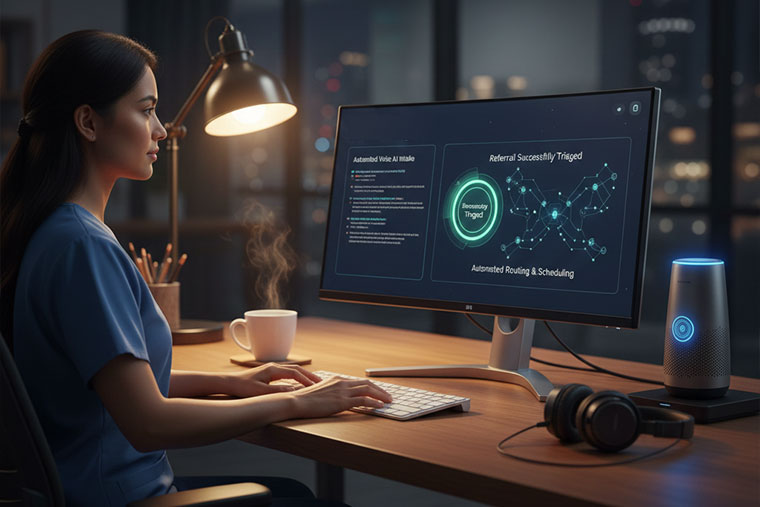AI-Powered Healthcare Data Security
Stay Ahead of Cyber Threats with Intelligent AI Security Agents
.jpg)
The Growing Need for AI Agents in Healthcare Security
As cyberattacks on healthcare systems increase, 2025 demands a new level of vigilance. Traditional security measures struggle to keep pace with evolving threats, making AI security agents essential for real-time monitoring, automated threat response, and proactive risk prevention. Unlike static security systems, AI agents continuously learn and adapt. They detect anomalies—such as unusual user behavior or suspicious network activity—before an attack occurs. By analyzing historical data and global trends, AI forecasts potential threats, allowing healthcare organizations to strengthen defenses before breaches happen.
Use Cases of AI Security Agents in Healthcare
AI-Driven Data Breach Detection & Prevention
Problem: Healthcare organizations struggle to detect cyber threats before they cause damage. Solution: AI security agents analyze network traffic and user behavior in real time, flagging anomalies and blocking attacks. Impact: Reduces breach incidents, enhances response times, and strengthens cybersecurity.
Insider Threat Detection in EHR Systems
Problem: Unauthorized access to patient records poses a major risk. Solution: AI detects unusual login patterns and excessive data access, identifying insider threats before they escalate. Impact: Prevents data misuse and ensures patient confidentiality.
AI-Powered Access Control & Identity Verification
Problem: Traditional passwords are vulnerable to cyberattacks. Solution: AI security agents implement multi-factor authentication, facial recognition, and encrypted user authentication. Impact: Strengthens identity verification and minimizes unauthorized access risks.
Real-Time Security Event Analysis & Response
Problem: Security teams struggle with data overload and slow response times. Solution: AI automates security event analysis, prioritizing critical alerts and triggering instant defensive actions. Impact: Reduces security response times and prevents large-scale breaches.
Contact
Let’s secure your patient data with cutting-edge AI-driven security solutions. Contact us today.
How AI Security Agents Ensure Data Protection
Proactive Threat Detection & Automated Breach Response
Continuous network monitoring detects anomalies and potential cyber threats in real time. Automated response mechanisms isolate breaches before they escalate, minimizing data exposure. AI-powered incident response blocks malicious IPs, quarantines threats, and learns from attacks to improve future defenses.
Advanced Access Control & Data Encryption
Multi-layered security measures enforce role-based access, biometric authentication, and encryption. AI-driven identity verification prevents unauthorized access to patient records. Real-time EHR monitoring detects insider threats and unusual data access patterns.
Predictive Security & Risk Mitigation
AI forecasts vulnerabilities before they can be exploited, allowing organizations to proactively strengthen weak points. Adaptive learning models improve security responses over time, reducing reliance on manual interventions. Automated forensic analysis accelerates investigations, ensuring rapid threat resolution.
Protect sensitive health information with AI-driven threat detection, compliance monitoring, and real-time risk alerts
Secure Patient Data. Strengthen Trust.

Frequently Asked Questions
AI security agents are intelligent systems that monitor networks, user behavior, and data access in real-time to detect, prevent, and respond to cyber threats across healthcare systems—automating and strengthening data security.
AI continuously scans network traffic and user activity to detect anomalies such as unusual login patterns or unauthorized data access. It can isolate threats and automatically respond before a breach occurs, minimizing damage.
With threats evolving and attackers using AI themselves, traditional tools are no longer enough. AI security agents bring real-time monitoring, predictive defense, and adaptive learning—offering smarter, faster, and more scalable protection for healthcare systems.
AI enforces advanced identity verification using multi-factor authentication, biometrics (like facial recognition), and role-based access, ensuring only authorized users can access sensitive health records.




